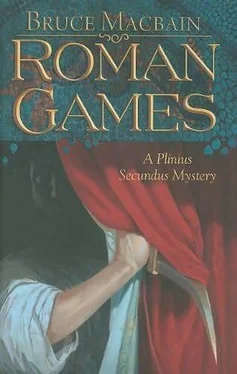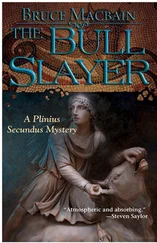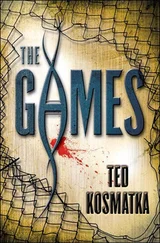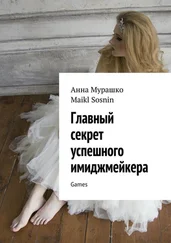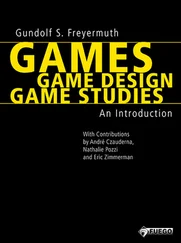Bruce Macbain - Roman Games
Здесь есть возможность читать онлайн «Bruce Macbain - Roman Games» весь текст электронной книги совершенно бесплатно (целиком полную версию без сокращений). В некоторых случаях можно слушать аудио, скачать через торрент в формате fb2 и присутствует краткое содержание. Жанр: Исторический детектив, на английском языке. Описание произведения, (предисловие) а так же отзывы посетителей доступны на портале библиотеки ЛибКат.
- Название:Roman Games
- Автор:
- Жанр:
- Год:неизвестен
- ISBN:нет данных
- Рейтинг книги:3 / 5. Голосов: 1
-
Избранное:Добавить в избранное
- Отзывы:
-
Ваша оценка:
- 60
- 1
- 2
- 3
- 4
- 5
Roman Games: краткое содержание, описание и аннотация
Предлагаем к чтению аннотацию, описание, краткое содержание или предисловие (зависит от того, что написал сам автор книги «Roman Games»). Если вы не нашли необходимую информацию о книге — напишите в комментариях, мы постараемся отыскать её.
Roman Games — читать онлайн бесплатно полную книгу (весь текст) целиком
Ниже представлен текст книги, разбитый по страницам. Система сохранения места последней прочитанной страницы, позволяет с удобством читать онлайн бесплатно книгу «Roman Games», без необходимости каждый раз заново искать на чём Вы остановились. Поставьте закладку, и сможете в любой момент перейти на страницу, на которой закончили чтение.
Интервал:
Закладка:
The Baths of Titus, built by Domitian’s elder brother during his brief reign, was only the latest of the great imperial thermae provided by emperors to the Roman people at enormous expense. The shouts of happy citizens disporting themselves, men and women together, filled the vast echoing complex. There was method to this philanthropy. It had not taken the emperors long to learn the profound truth that people who are warm and wet do not, as a general rule, riot in the streets. In this democracy of nudity even the poorest Roman could, for an hour every day, imagine himself to be a little king; could forget for a moment that elsewhere a real king, in a real palace, held the power of life and death over him.
Martial undressed in one of the large changing rooms and stowed his things in an open cubicle. Other bathers posted slaves to guard their belongings; Martial had nothing worth stealing.
Beyond, all was bare flesh. Here respectable citizen and cruising libertine, rich man and poor man, male and female met as equals.
Martial went first to the caldarium to luxuriate in the steam. Adjacent to the steam room lay the exercise court, from where the poet, who never exercised himself, could hear the grunts and groans of men swinging lead weights, of ball players tossing a medicine ball in a three-cornered game of catch, of wrestlers and runners. On his other hand, were the massage rooms. From here echoed the slap of hands on oiled shoulders and the shrill voice of the hair-plucker, calling his trade.
When he was red as a mullet, Martial went on to the tepidarium and from there into the frigidarium, where he dove into the cold pool with a great splash and a boy’s happy shout, and swam vigorously for a minute or two.
The baths cultivated the mind as well as the body. Beside the swimming pools and gymnasia, there were libraries, art galleries, and a large and beautiful recitation hall, where people, back in their clothes again, could beguile the hours, listening to a play or a poetry reading. Hither, in his threadbare tunic, went Martial.
Instantly a circle gathered round him, already chuckling. He was among friends. He knew their names, knew their foibles, knew they’d take insults from him that they wouldn’t have taken from anyone else. He whirled from one to another, leering, mugging, improvising.
He flung a hairy arm about the stooped shoulders of an elderly man. “Caecilianus!” “Now you’ve shut your wife up tight,
(A woman as homely as she is!)
Fututores besiege her by day and by night,
Got any more bright ideas?”
He moved on to an aging prostitute, who plied her trade in the baths, and, wrinkling his nose, declaimed- “Why won’t I kiss you? Philaenis, you ask.
You’re one-eyed, you’re red-faced, and bald.
To undertake so vile a task,
Why, let some fellator be called!”
He pranced over to a heavy woman with pendulous breasts and clapped his hands with delight- “Dasius sells tickets here,
No brighter boy than he!
Big-titted Spatale just tried to come in,
And Dasius charged her for three!”
He pounced upon a portly man with curled and scented hair and, waggling a reproving finger under his nose, improvised- “Your slave boy’s mentula is tired and sore,
And, Naevolus, so is your culus.
We reckon what he has been using you for,
O Naevolus, don’t try to fool us.”
Poor Naevolus looked like he wanted to escape. Martial released him and tip-toed over to another, his hand cupped behind his ear. “Flaccus, listen, d’you hear
The sound of hundreds clapping?
It must be Maro strolling near,
His great mentula flapping.”
This brought a lot of laughter; the well-equipped Maro was a familiar sight.
Martial was warming to his work, starting to enjoy himself-and then in one swift instant he found himself abandoned. Pliny had just been spotted near the door.
The most populous city on earth was still in many ways only an overgrown village, where nothing stays secret for long. The prefect’s troopers stationed at Verpa’s house had told friends, who had told other friends, and so on, until all Rome by now knew that Gaius Plinius Secundus was handling the Verpa case. He was instantly mobbed.
Martial knew him by sight; had heard him holding forth in the Basilica Julia where the Chancery Court sat and any passerby might stop and listen. He had put him down as just another brass-throated haranguer with the soul of an accountant.
There being nothing else for it, Martial was forced to follow his audience, only to hear the vice prefect protesting that he had no comment, and would they kindly let go of him! Spying Martial in the crowd, Pliny shouted over the hubbub, “I fear I’ve spoiled your recital, and most amusing it was.”
“Not your fault, sir.” Martial shouldered his way to Pliny’s side and held out his right hand. Never to quarrel with a potential meal was the chief rule of his life. “Marcus Valerius Martialis at your service.”
“I know your name. Who in Rome doesn’t? How can I make it up to you?”
“Well,” the poet favored him with his most winning smile-he could be charm itself when he wanted to. “It is approaching dinner time, and I find myself actually unengaged…”
“Say no more. Literary men are always welcome at my table. I’m on the Esquiline near the Lake of Orpheus. Ask anyone in the neighborhood for directions. I’m going home soon. Come in an hour. Vale.”
As Pliny passed through the exercise yard, some rowdy young men were making a nuisance of themselves, kicking a ball around in a circle, running and making diving catches, accompanied by much shouting and laughter. Suddenly the laughter died in their throats. One of them had kicked the ball high up over the heads of his companions and they watched in horror as it struck the gilded body of the Lord and God, towering on its pedestal over the exercise yard. Instantly they scattered, trying to lose themselves in the crowd. But some weren’t quick enough. An older man tackled one, held onto him by the ankle, crying, “Here, I’ve got the traitor!” From the edge of the crowd grim-faced troopers closed in on the terrified boy.
Pliny didn’t stay to watch the outcome. He felt a coldness in his belly.
Chapter Ten
The tenth hour of the day.
The sun was dipping behind the housetops as Martial, dressed in his one presentable dining-out suit, set out from his tenement on the Quirinal along cobblestone streets still littered with the detritus of the morning’s festivities. His way lay across the Viminal, and up the steep slope of the Esquiline. At his heels trotted a sad-looking little boy who carried his napkin. The poet couldn’t afford to keep a slave, but hired one sometimes for appearance’s sake. Martial was hungry, starving in fact, but the evening held no further enticements for him. Dinner with this earnest, unimaginative lawyer and his equally dull friends would be something to suffer through. But that was how impecunious poets survived.
A slave met him at the doorway, removed his shoes and gave him dining slippers to wear, and conducted him into the triclinium, where his host rose to greet him.
To his surprise, Martial found himself the only guest. “We dine intimately tonight,” said Pliny, “just my wife and my freedmen. Simple fare. No roast piglet stuffed with thrushes, no honeyed dormice, no sows’ udders. A ‘philosopher’s meal’ is my style.”
Martial, who relished sows’ udders, did his best to hide his disappointment.
“I feed my freedmen and my humblest guests the same food and wine I consume myself,” Pliny burbled, “I make no distinctions of class.”
“Admirable,” murmured the poet, wishing that Pliny fed his freedmen on mullet and Lucrine oysters.
Читать дальшеИнтервал:
Закладка:
Похожие книги на «Roman Games»
Представляем Вашему вниманию похожие книги на «Roman Games» списком для выбора. Мы отобрали схожую по названию и смыслу литературу в надежде предоставить читателям больше вариантов отыскать новые, интересные, ещё непрочитанные произведения.
Обсуждение, отзывы о книге «Roman Games» и просто собственные мнения читателей. Оставьте ваши комментарии, напишите, что Вы думаете о произведении, его смысле или главных героях. Укажите что конкретно понравилось, а что нет, и почему Вы так считаете.
